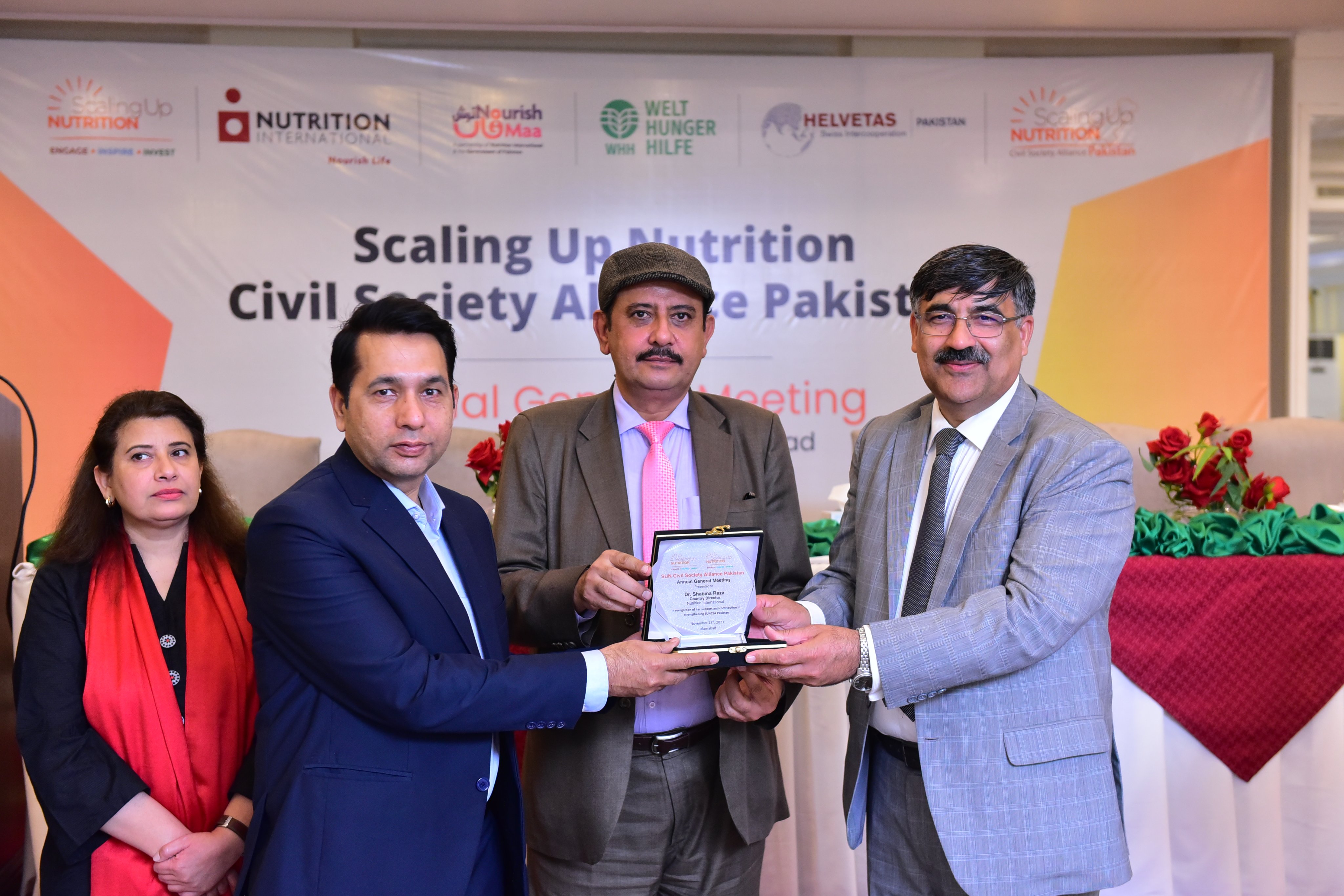Pakistani SUN Networks meet to revisit success, establish plans for 2024
Shortly after the country approved its three-year national multi-sectoral nutrition plan – allocating $30 million to fight child malnutrition and foster healthy dietary practices – Pakistani nutrition stakeholders gathered to celebrate the successes of 2023 and set goals for the new year.
Nutrition progress and plans
The COVID-19 pandemic continues to have lasting impacts on nutrition, as highlighted in the 2023 Global Nutrition Report. According to the latest data, Pakistan is on course to meet its exclusive breastfeeding target - with nearly half of infants being fed nothing but breastmilk. The country has also gotten closer to achieving its stunting goals, but 37.6 percent of children under 5 years of age are still affected – much higher than the average for the Asia region (21.8 percent).. Meanwhile, Pakistan has stagnated in its efforts to reduce anaemia among women of reproductive age, with 41.3 per cent of women aged 15 to 49 years affected, according to the Global Nutrition Report.
To help address these issues, in 2023 the country launched its National Multisectoral Nutrition Programme to reduce Stunting and other Forms of Malnutrition, which aims to promote the provision of micronutrients and nutrition supplements, nutrition awareness, early childhood development, household food security, high-quality multisectoral nutrition research, and public-private partnerships for nutrition. The programme covers 36 disaster-stricken districts in the country, which have experienced high stunting rates.
 In addition to discussing the ramifications of this report and efforts to combat malnutrition in Pakistan, meeting participants also analyzed progress against SUN Network Plans 2023 in line with the SUN Movement Strategy 2021–2025 (SUN Strategy 3.0), discussed the efforts made since the Tokyo Nutrition for Growth Summit 2021, and began looking forward to the upcoming Nutrition for Growth Summit.
In addition to discussing the ramifications of this report and efforts to combat malnutrition in Pakistan, meeting participants also analyzed progress against SUN Network Plans 2023 in line with the SUN Movement Strategy 2021–2025 (SUN Strategy 3.0), discussed the efforts made since the Tokyo Nutrition for Growth Summit 2021, and began looking forward to the upcoming Nutrition for Growth Summit.
Ongoing nutrition efforts in Pakistan
A panel discussion at the meeting reviewed the Pakistani school health and nutrition programme and its impacts on health, nutrition and education outcomes and worked on optimizing the country’s nutrition curriculum, drawing insights from a regional case study. Particularly considering the benefits of food safety, the panel also highlighted the nexus of food security, nutrition and climate.
A question-and-answer session covered strategies for promoting nutrition in schools and led to proposals for government and partner actions. The responses provided valuable insights into a diverse range of challenges and potential solutions within the broader context of health, nutrition and education in Pakistan.
Civil Society Alliance annual gathering
Recently, the SUN Civil Society Alliance (SUN CSA) in Pakistan held its annual general meeting in Islamabad. The vibrant network is home to more than 250 civil society organizations in Pakistan, including from all federating units of the country engaged in nutrition-specific or nutrition-sensitive interventions.
 More than 200 SUN CSA members participated in the meeting, demonstrating a shared commitment to addressing nutritional challenges and fostering collaboration for a healthier and more resilient Pakistan.
More than 200 SUN CSA members participated in the meeting, demonstrating a shared commitment to addressing nutritional challenges and fostering collaboration for a healthier and more resilient Pakistan.
During the meeting, member organizations exchanged best practice models, creating a dynamic marketplace for SUN CSA Pakistan members to showcase their impactful work. The CSA has been a major contributor, mobilizer and technical facilitator for the development and implementation of the federal and provincial multi-sectoral nutrition strategies in Pakistan, including the inclusion of nutrition on the political agendas of the major political parties and the establishment of a forum for parliamentary nutrition champions.
Under the leadership of Dr. Nazeer Ahmed, the SUN Government Focal Point in Pakistan, the CSA recently conducted an internal process to streamline and optimize its efforts. This included aligning its terms of reference with global guidelines and commitments, as well as with national and local priorities and opportunities.